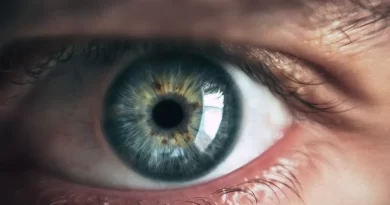Are you wondering how to help someone with a valium addiction?
It is possible when you know about how it works – read on to know more about the drug.
Assisting someone who is suffering from a valium addiction is tough – because of how complex tis effects on the nervous system are. Yes, all drugs have their own complications, but dealing with valium is harder because of how quickly one becomes addicted to it.
What is valium?
With the legalized trade name of diazepam, this is a drug that is within the class of benzodiazepines, and it has longer lasting effects compared to similar drugs in its class. It is most often prescribed to relieve symptoms of anxiety, seizures, and severe stress, as well as the uncomfortable symptoms of alcohol withdrawal. It works by reducing the hyperactive functioning of the brain.
Its effects begin to show up within a period of thirty minutes to half an hour, and you can develop an addiction to it through two major ways. The first is having a legitimate [prescription for a certain medical reason, and you surpass this dose – this is when addiction sets in. on the other hand, you can also become addicted when you consume it without a legitimate medical reason, such as a significant other having a prescription.
You ingest it orally in the form of a pill, and take it one to four times a day. It can become addictive very quickly, thanks to it staying for long hours in the body compared to short-acting benzos. Even though the initial purpose is making someone feel better from these uncomfortable symptoms, it is easily addictive when you take it more than prescribed.
The drug odes not usually cause death when you overdose on it alone, and it may or may not happen when you are addicted to other drugs. However, if you use it in combination with other drugs such as cocaine or alcohol, the combination has high chances of being fatal.
What are the effects of valium and why do people abuse it?
For many people, the stress of daily life is a major actor in getting prescriptions, and valium is among the most common ones. However, it is also common to see the same people abusing the drug and becoming addicted.
Many people who start taking the drug do not aim to get high – they just want to feel normal, and to relieve symptoms of anxiety and stress. The drug also helps people to sleep, so people suffering from sleep conditions like insomnia can also abuse the drug easily. If consumed in higher doses, it can increase your sense of euphoria and calmness.
Many people seem to think that the drug is not dangerous because it is legal, which has led into many overdoses and addictions. The truth tells a different story though – benzodiazepines are some of the most addictive class of substances in the market today, whether you are dealing with illegal or legal sources. The detox process is also very long and hard to do. For instance in the United Kingdom, a minimum of 50 percent of users get their prescription of this drug from doctors, while others buy them from family, friends and street dealers.
Symptoms of addiction to valium
Before starting off with naming the symptoms, it is important to distinguish between signs and symptoms. The general rule is that a person abusing the drug will experience symptoms in their body, but another person will notice these as signs.
There are two major methods of learning about the symptoms, and they are the se of clinical trials, as well as studying different literature on the side effects. Depending on how severe these symptoms are, they will indicate the severity of the addiction.
The moderate effects include delirium, a feeling of lightheadedness, irritation in the stomach, dry mouth, delusional feeling of well-being, and excessive salivating. It also includes a spinning feeling, paranoia, rapid heart rates, and spasms in the muscles, nervousness, nausea, abnormal dreams, and increased aggressiveness.
The more severe side effects include the onset of depression, suicidal thoughts, itching, rashes on the skin, disrupted breathing, breaking out of hives or sores, seizures, and memory loss. It also includes fainting, loss of concentration, inability to empty your bladder, yellowing of the skin, and a severe loss of water from the body.
Many people might be experiencing these symptoms, but they may not want to say it because they want to continue using the substance. That is part of what makes drug addiction very difficult to break; the drugs will lie to the brain that things are okay.
Of interest in trying to understand the nature of valium addiction is observing the behavior of the person, as there could be some overlap with the physical symptoms. One of these is ‘doctor hopping’, because the drug is mainly a prescription one. If you have noticed your loved one changing their doctor all the time, it could be because they want to get new sources of pills. The good news is that this practice is now slowly ending, thanks to the increasing regulations of state laws regarding changing doctors and getting new prescriptions.
The person also withdraws from their loved ones, they become more secretive, and they hang out with new people that abuse drugs, and they begin to steal valuable items or possessions in order to get more money to buy more drugs.
Signs of overdoses
This usually occurs when the user has taken a high amount of the drug, or thy have mixed it with other drugs. The most common sign is slow breathing rates, and a very deep sleep. In addition, it is important to check if the person is going through lack of awareness, their fingernails and lips turning blue, drowsiness and fatigue, incoordination in movement, confusion, tremors and double vision.
These symptoms make it an urgent matter to seek medical help, and also treatment for the withdrawal symptoms afterwards.
Final thoughts
Valium addiction is just like all other drug addictions, but it needs to be dealt with swiftly as it can cause loss of life when combined with other drugs. This will assist the person to live a healthier life, as long as the addiction is solved as early as possible.







